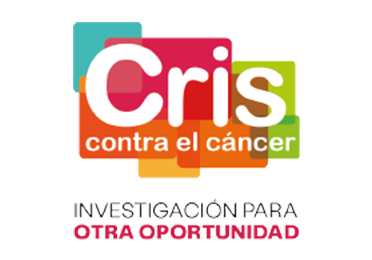
- The results of the NALA study –a multicenter, phase III, registration study in patients with HER2+ breast cancer who had received at least two HER2 targeted therapies– demonstrates that progression-free survival increases by up to 24% with the combination of neratinib plus capecitabine as compared to a combination with lapatinib.
- The results of this new therapy, published in Journal of Clinical Oncology, open the door to the approval of the therapy in Europe and could be a breakthrough in clinical practice in the treatment of HER2+ patients
- In addition, the samples obtained in the NALA study are being used in a study centralized in the VHIO Cancer Genomic group to identify biomarkers that predict the patients who will benefit the most from this type of treatments.
Barcelona, July 17, 2020.- Advances in cancer research in the last years have allowed an increasingly more accurate characterization of the different types of tumors. This information is essential for precision medicine, which is aimed at attacking specific targets to improve outcomes. Such is the case of HER2+ breast cancer, which occurs in 1 out of 6 cases of breast cancer and is generally more aggressive than other subtypes of cancer.
One of the therapeutic strategies under study in this subtype of tumors is based on the inhibition of the HER2 receptor at the level of the tyrosine kinase domain. The results of the NALA trial have been published in the Journal of Clinical Oncology, which first author and principal investigator is Dr. Cristina Saura, head of the Unit of Breast Cancer at the Vall d’Hebron University Hospital (HUVH) and leader of the Research Group in Breast Cancer at the Vall d’Hebron Institute of Oncology (VHIO). Dr. Mafalda Oliveira, a member of the VHIO Research Group in Breast Cancer, has also been involved in the study. The doctors are members of the Governing Committee of SOLTI.
New therapeutic options for HER2+ patients
NALA is a multicenter, phase III, registration trial that involved patients with HER2+ breast cancer who had received HER2 targeted therapies previously. The study compares neratinib and lapatinib –HER2 inhibitors at the level of tyrosine kinase, with irreversible and reversible effects, respectively– used in combination with capecitabine. These results were advanced in the 2019 American Society of Clinical Oncology (ASCO) Annual Meeting. The results of this trial led to the approval of the therapy in USA and are expected to support approval in Europe. This finding offers a new therapeutic option for patients with metastatic HER2+ breast cancer.
The sample of the study was composed of 621 patients from different countries. The combination of neratinib plus capecitabine as compared to a combination with lapatinib has been demonstrated to significantly improve disease-free survival. Dr. Saura explains: “We have seen that the risk of disease progression can be reduced by 24% in patients who had been previously treated with at least another two HER2 targeted therapies”. This trial also demonstrated that this combination delays the need to treat neurological symptoms caused by brain metastases, due to the action of the drug on the central nervous system. “Thanks to its small size, the molecule crosses the blood-brain barrier and reaches the brain. This allows the treatment to act on symptoms of brain metastases and delays the need to treat them” This treatment has prevailingly gastrointestinal toxicity, especially diarrhea which, although it can be a limitation and requires specific treatment, can be managed with the treatments currently available.
Coordination of efforts across 23 hospitals
The SOLTI group was the national coordinator of a study that involved 20 hospitals in Spain and 3 in Portugal, with a remarkable sample of 63 participants, which accounts for 10% of the global sample of patients. Dr. Cristina Saura, a member of the Governing Committee of the research group, highlights the titanic effort made by the recruitment sites of the study and the lead role that VHIO has played as the main recruitment site in our country.
The key: identifying biomarkers
The samples taken for the NALA study are being used to identify biomarkers that predict the patients who will benefit the most from this type of treatment. These results were presented in the European Society for Medical Oncology (ESMO) Virtual Congress 2020, held the 23rd and 24th of May. Apart from Dr. Cristina Saura and Dr. Mafalda Oliveira, Dr. Ana Vivancos, head of the VHIO Cancer Genomics Group and Judit Matito, a member of the same group, were also involved in this study. The search for mutations in a panel of 57 genes by NGS was performed in the laboratory of this research group. Thus, this laboratory was the laboratory of reference for genomic analysis at international level. “This is a clear example of translational research in Vall d’Hebron, where VHIO researchers and medical oncologists cooperate to offer a personalized and increasingly more precise medicine to their patients”, says Dr. Ana Vivancos.
“We succeeded to obtain genomic information from the samples, although the material available was very limited. This research study helped us to retrospectively explore multiple biomarkers, which will be crucial for the selection of one treatment or another in the future, and has revealed interesting and significant information”, explains Dr. Ana Vivancos, who coordinated the genomic analysis of all the samples of this study. “Thus, we expect that the data obtained are applicable to clinical practice, as it is the case of the finding that patients with mutations in the PIK3CA gene, involved in cell multiplication and survival, had a poorer prognosis than patients with an ERBB2 mutation (which encodes the HER2 protein), who had a more favorable prognosis”.- In the same line, “we observed that the quantitative expression of the HER2 protein was associated with better outcomes in the patients who received neratinib”, adds Dr. Saura.
Once again, this international trial, with a major contribution of Vall d’Hebron Institute of Oncology (VHIO), is an example of translational oncology put at the service of precision medicine.
_____________________
Reference:
Saura C, Oliveira M, Feng YH, et al. Neratinib Plus Capecitabine Versus Lapatinib Plus Capecitabine in HER2-Positive Metastatic Breast Cancer Previously Treated With ≥ 2 HER2-Directed Regimens: Phase III NALA Trial [published online ahead of print, 2020 Jul 17]. J Clin Oncol. 2020;JCO2000147. doi:10.1200/JCO.20.00147










